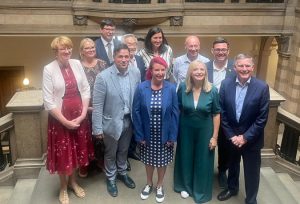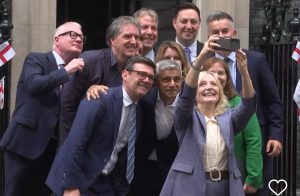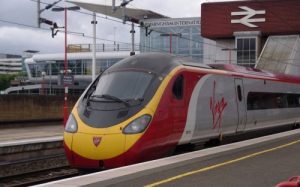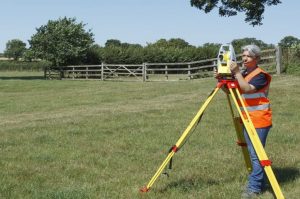Regional Mayors tap in to Westminster to make transport case
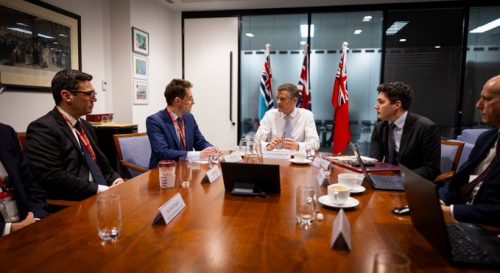
Metro Mayors Andy Burnham and Andy Street have pushed the case for a privately funded replacement for HS2 in meetings with Transport Secretary Mark Harper yesterday.
Speaking about the meeting, Burnham told the Commons Transport Select Committee: “We’ve had a constructive discussion with the secretary of state this morning about the work that we’re doing.
“It’s good that the government is at least listening to what we’re saying.”
 He said: “As 2030 and 2040 come around, there is just no way on God’s earth that the M6 and the West Coast mainline are capable of servicing the growth that we’re seeing in Greater Manchester and in the West Midlands.
He said: “As 2030 and 2040 come around, there is just no way on God’s earth that the M6 and the West Coast mainline are capable of servicing the growth that we’re seeing in Greater Manchester and in the West Midlands.
“There has to be another option for rail connectivity between the two cities.
“We’re just looking at those possibilities, looking at a modest upgrade to the West Coast mainline or something more substantial, and how private finance might play a role in that.”
On social media Mark Harper said: “Good to meet with @andy4wm and @AndyBurnhamGM today to discuss their proposals to improve rail connections between the great cities of Birmingham and Manchester. We’ll keep in contact as they continue to set out their ideas.”
Separately, the Department for Transport and the Mayors jointly announced a new pilot scheme for tap-in, tap-out ticketing at selected stations across the West Midlands and selected routes in Greater Manchester.
These trials will also pave the way for the future roll-out of similar technology to more stations across the North and Midlands, funded in part by £100m reallocated from HS2, enabling the further rollout of such technology in more places.
Rail Minister Huw Merriman said: “We want to encourage more people back onto our trains, with tap-in technology meaning using our stations couldn’t be easier.
“Our railways have a long history, but projects like these – part of the Government’s wider plans for reform – will ensure they have a bright future too.”

Andy Street
The West Midlands pilot is planned to cover 75 stations across the Transport for West Midlands (TfWM) area (including five currently under construction), and use existing ‘Swift’ smartcards, meaning passengers can travel seamlessly on local bus and tram services as well.
Greater Manchester’s pilot scheme is planned to include 17 stations on the Glossop-Manchester Piccadilly and Stalybridge-Victoria lines. It will use contactless bank cards and devices, and will support the wider ambition to deliver full multi-modal fares and ticketing integration across bus, Metrolink, rail and cycle hire as part of the Bee Network by 2030.
In preparing the pilots, the Department for Transport, Great British Railways Transition Team (GBRTT) and Rail Delivery Group (RDG) have worked closely with TfWM, the West Midlands Rail Executive, Transport for Greater Manchester and train operators. Work will continue to finalise plans for the pilots ahead of launch in 2025.
Meanwhile, work being led by GBRTT on the development of new regional partnerships with Transport for West Midlands and Transport for Greater Manchester is also underway, to help more towns and cities across the country benefit from greater local decision-making on local ticketing, services and stations. Separately, the Transport Secretary and Rail Minister met with regional Mayors on Wednesday to discuss their proposals for alternative rail connections between Birmingham and Manchester.
Mayor of Greater Manchester Andy Burnham said: “We are transforming how people travel in Greater Manchester, with the aim for people to pay for journeys easily and seamlessly across buses, trams, trains and cycle hire. We look forward to progressing with these new contactless rail pilots, and working together to develop a more meaningful and accountable partnership that allows us to integrate local rail services across the city-region into the Bee Network by 2030.”
Andy Street, Mayor of the West Midlands, said: “Our Swift smartcard already enables passengers to transfer seamlessly between our various local bus operators and Metro tram services whilst guaranteeing they get best value fares.
“Now thanks to this pilot scheme, we will now add rail to our offering – making Swift truly multi-modal and bringing us much closer to a London ‘Oyster card’ style system.
“This is a practical example of how the Deeper Devolution Deal we agreed with Government is delivering tangible benefits for local people right across our region.”

